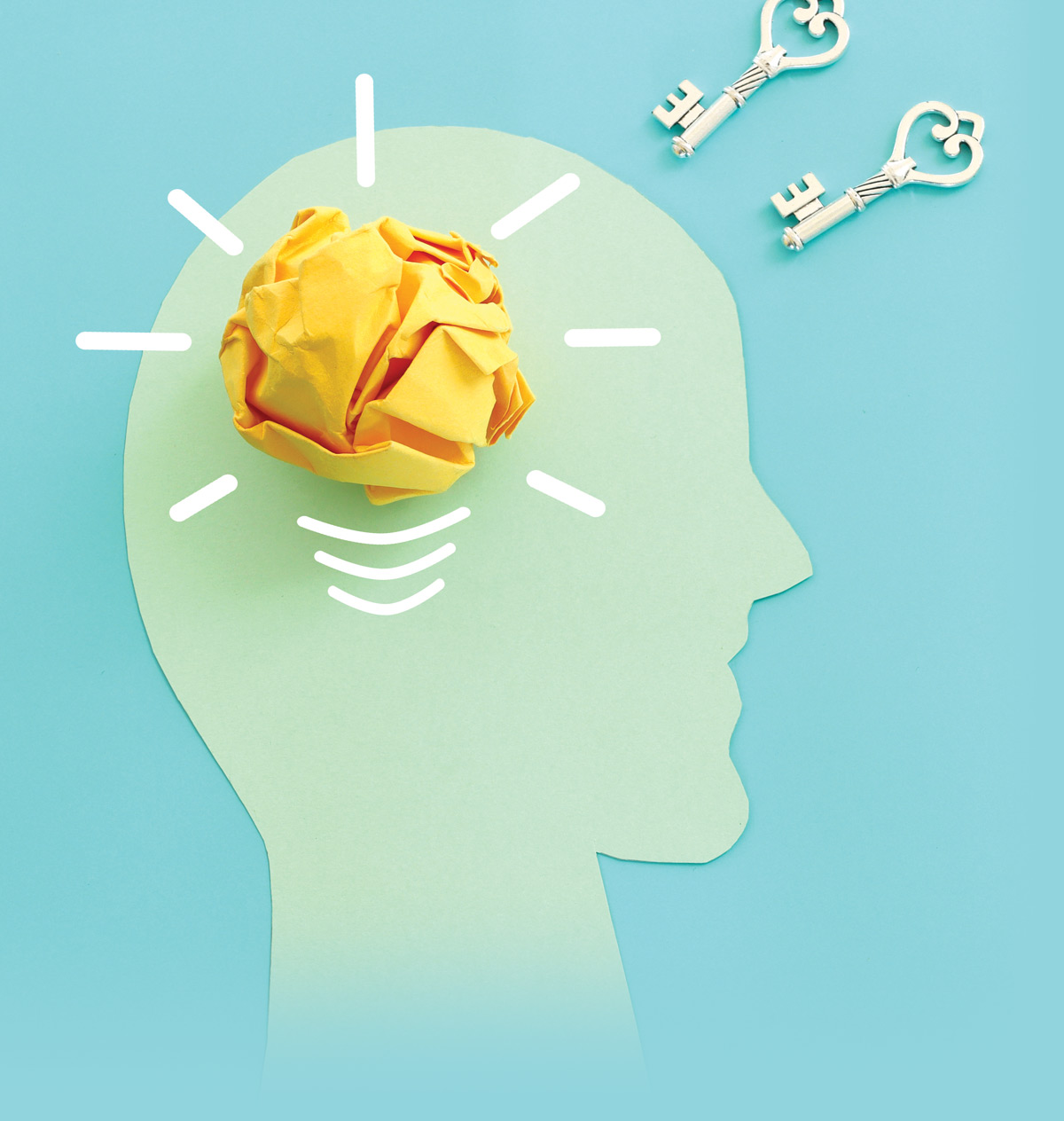
Reflections on the Power of Words
love words. My mom ignited this adoration. As a child, when I dared to suggest I was bored, my mom would hand me a dictionary or thesaurus and expect a report of what I had learned over dinner. I loved the way some words sounded, and often I’d try to impress others by using fancy words. My mom had the audacity to suggest I should refrain from using words I could not pronounce or spell correctly; I was undeterred.
Under the tutelage of a keen advisor in college, my vocabulary increased and my competence and passion for language followed suit. In my 20s, I talked my way out of a few traffic tickets, and I am certain I talked my way into my career. Since then, my commitment to thoughtful, creative, and the occasionally clever use of words has been a pillar of my personal and professional life.
It is ironic that I, a lover of words, have been brought to my knees with five unassuming ones.
This all-too-common expression has passed my lips countless times. However, all too often, I overuse the phrase while feeling hopeless, apathetic, or devastated. Therein lies a problem.
This all-too-common expression has passed my lips countless times. However, all too often, I overuse the phrase while feeling hopeless, apathetic, or devastated. Therein lies a problem.
When I connect “it is what it is” with the feeling of hopelessness, I sabotage my potential success. When I couple “it is what it is” with apathy, I give myself permission to withdraw from the situation, which often leads to a lack of accountability or creativity. When I pair “it is what it is” with feelings of devastation, I easily fall into a victim mentality riddled with anxiousness and insecurities.
Words, you see, express our thoughts, and our thoughts ignite our feelings and emotions. Feelings and emotions drive our behavior, and our behavior affects our outcomes. So, my words, and the feelings they create, will either help or hinder my success.
This was ever apparent months ago when a significant health issue put the brakes on my mobility. Negative, defeating thoughts consumed me, and I felt I was doomed. Thankfully, a few close friends and family members, once they learned about my situation, helped me realize how damning my mindset could be. So, with great effort, I actively replaced the limiting cognitive thoughts with those that were more hopeful. This wasn’t a natural paradigm shift for me, so I researched the power of thought. I learned that how I phrased situations in my mind could affect the emotions and feelings that followed.
In addition to rephrasing my language about a particular situation, I committed to ensuring the growth mindset was ignited by adding the word “but” to my newly articulated phrases. Some examples are below.
- “Standing is impossible so I cannot cook” became “Standing is really difficult, but if someone can rearrange things in my kitchen, I can cook.”
- “I can only hobble around with this walker” became “I may only be able to hobble around with this walker, but I am quite valuable to my clients standing, sitting, or hobbling.”
- “I cannot drive” became “I cannot yet drive, but I have friends and neighbors who are willing to help me get to where I need to be.”
“But” helped me switch from a powerless mindset to a liberating mindset. “But” enabled courageous movement forward so I could make the most out of my situation.
It’s been six months and I have fallen back into bad habits more often than I care to admit, but I catch myself and I am committed to improvement. (See what I did there?)
As a consultant and coach for over 20 years, my mantra has been to improve my community, one employee, one team, and one leader at a time. What better time than now to start with myself!
There is a remarkable difference between “I can’t” and “how can I?” and to get there, I added the words “so now” to “it is what it is.” Some examples of how I am accepting the facts of the situation while intentionally leaning into possible solutions are as follows:
- My client is disappointed that a major mistake in the project went undetected, so now I need to solicit from the clients what they would like to see as a remedy. So now, I need to gather the team to brainstorm mitigating ideas.
- I cannot physically tend to my garden or lawn this summer, so now I need to solicit help from folks looking for work or, if it makes more sense to offer a trade, begin to engage in those exchanges so all of us can get what we need.
- I cannot travel to the East Coast right now to be with a grieving friend, so now I need to carve out time during my day to check in on her. So now I could get creative with video to let her know that she’s in my heart. So now I need to reach into our shared friendship circle to ascertain how we all might help my friend and her family.
“So now” enables meaningful improvement in my attitude and outlook. “So now” serves as a gentle reminder that I can and should lean and lead forward. “So now” kindles my capacity for problem solving and better enables creative ideation.
After watching Ms. Taylor’s presentation, I reflected on my history. I thought of the devastating blows, the incredibly bad news, and the insurmountable barriers that had shaded my past. Indeed, I often perceived these situations as all-encompassing. Moreover, I realized I also attached my own worth, value, or potential to these challenging or disturbing times. No wonder these times were debilitating!
Since watching Ms. Taylor’s presentation (three times!), I decided to add some thinking to my thinking. What I mean by this is that I pledged to mindfully consider what the circumstances are not. Below are some relevant examples from the past few weeks.
- My recovery is slower than the neurosurgeon anticipated, but each week I see improvement. In addition, a slower than average recovery does not mean my condition will not improve.
- This relationship is over. It was enjoyable while it lasted, and its end is not a reflection of my value as a partner.
- My professional life has been disrupted. This is not the first time a storm has come, and the drivers of this disruption are not associated with my expertise and potential. Moreover, they are not predictors of my future.
I love words. “It will be what we make of it” is an incredible use of words. The phrase demands we be accountable, it encourages us to move forward, and it invites us to be courageous.
I love words. “It will be what we make of it” is an incredible use of words. The phrase demands we be accountable, it encourages us to move forward, and it invites us to be courageous. “It will be what we make of it” deserves a prominent space in our lexicon. Might it even be my new mantra? Indeed, it is what it is!
